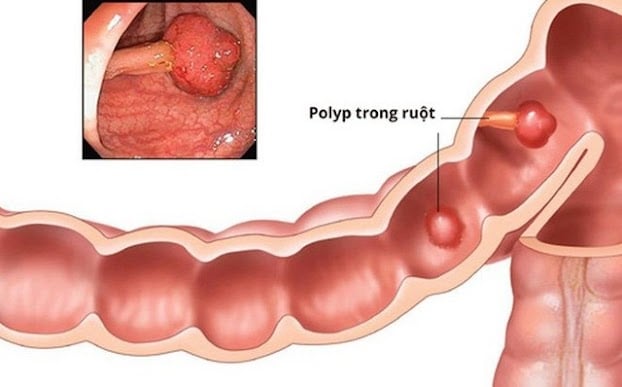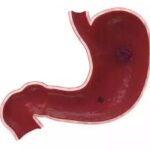Colorectal cancer is one of the five most common cancers in Vietnam and worldwide, according to Associate Professor and Doctor Vu Hong Thang, Deputy Head of the Department of Gastroenterology at K Hospital in Hanoi.
In Vietnam, over 16,000 new cases and more than 8,200 deaths from colorectal cancer are reported annually. The disease is currently among the five most prevalent cancers in the country. Its causes are closely linked to genetic factors and, especially, unhealthy lifestyles.
Colorectal cancer often develops from precancerous lesions or benign tumors in the colon and rectum, such as polyps (including single, multiple, or adenomatous polyps with a count of 100 or more). If left untreated, these polyps can progress to cancer within about ten years.

The disease progresses insidiously, giving those affected ample time for screening and early detection. Associate Professor Thang recommends regular, periodic screening as the best approach. Colorectal cancer is directly related to aging (affecting those aged 50 and above), but recently, there has been an increase in younger patients, with cases as young as 12 to 17 years old. Consequently, the recommended screening age for colorectal cancer in the community has been lowered to 45 years in several countries.
Notably, colorectal cancer has a very high inheritance rate. It also has a familial component, often affecting individuals with multiple polyps or Lynch syndrome.
Nearly 100% Survival Rate with Early Detection
Regarding treatment, Doctor Ha Hai Nam, Deputy Head of Abdominal Surgery Department 1 at K Hospital, reassures that a diagnosis of colorectal cancer is not a cause for despair. It has the most favorable prognosis among gastrointestinal cancers. The five-year survival rate reaches 65%. However, to achieve optimal results, early detection is crucial. If detected early, the success rate is nearly 100%, whereas late-stage detection lowers the success rate to only 14%.
Currently, colorectal cancer is treated using a multimodal approach, including surgery, chemotherapy, radiotherapy, targeted therapy, and immunotherapy. Surgery remains the cornerstone of treatment. Treatment outcomes have shown significant progress, especially when the disease is detected early. According to Doctor Nam, if you experience prolonged digestive disorders such as diarrhea, mushy stools, or unusual stool colors (black or bloody), promptly consult a medical facility for examination and screening by a gastroenterologist.
To prevent colorectal cancer, Associate Professor Thang advises individuals to take charge of their daily lifestyles. Diet is an essential factor: increase fiber intake with green vegetables and fruits; prefer plant-based and fish protein sources; and limit red meat, fried foods, grilled foods, or pickled vegetables. As this type of cancer is closely associated with unhealthy lifestyles, adopting healthy dietary and lifestyle habits from an early age is the most effective preventive measure.
7 Warning Signs of Cancer: Why You Must Not Ignore These Symptoms
“It is imperative to be vigilant about your health and seek medical attention when symptoms arise. Unfortunately, many patients only present with clear symptoms in the middle or later stages of their condition. To ensure early detection, be mindful of these seven crucial signs and symptoms that could indicate a serious health issue.”





































